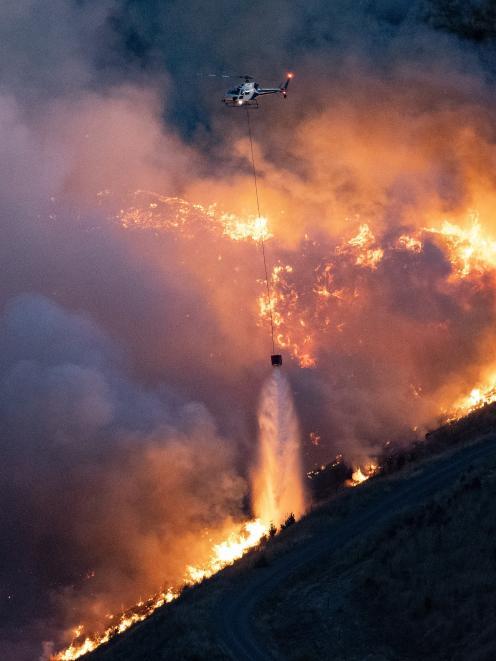Port Hills residents are disappointed a Fire and Emergency NZ investigation report could not identify what started the February blaze.
Fenz released its investigation report into the fire seven months after it started near Worsley Rd on February 14 this year.
The inferno triggered a major operation involving more than 100 firefighters, 15 helicopters and 30 engines.
- Port Hills fire started on private property
- Strategy aims to prevent another wildfire
- Calls to reduce fire risk
Fenz said the blaze started on a private property about 50 metres from Worsleys Rd.
But it could not say how the fire broke out, with no equipment or activities on the land the day it started.
Hundreds of homes had to be evacuated, and Christchurch City Council and Selwyn District Council declared a state of emergency which lasted a week.

"It's always in the back of your mind, you wonder what the initial cause for the ignition was so, yeah, I guess I'm a little disappointed but I've also moved quite far past it now."
The report stated the cause of the fire could not be proven to an acceptable level of certainty, therefore it was classified as "undetermined".
Dominique Leeming has fled her home twice in seven years due to wildfires on the hills. She said while there did appear to be lessons in the report, she is still worried.
"I'm concerned that with ongoing climate change and climate warming...any replacement of that fuel loads on the Port Hills, there's lots of talk in the report about relative to humidity and these types of technical things.
"I think it's not going to become less of a risk. It's going to become an increasing risk," she said.
Leeming said residents were taking it upon themselves to plant native bushes and trees to try to make the environment less flammable.
"Right along the Port Hills, private people, some of our neighbours not too far away, have been spending a lot of time planting and also in a lot of the public land.
"What I really don't want to see is more replacement pine planting," she said.

"Fire and Emergency New Zealand, has done extensive work with community groups providing information on low flammability species, natives as an example, and guidance on defendable spaces and how to make that safe for around their residential property. "
Meanwhile, Port Hills resident and Canterbury University Environment senior lecturer Matiu Prebble was not concerned about what caused the fire.
He said there needs to be a focus on preventing it from happening again.
''We're going to continually be in this vulnerable position here as a resident of the Port Hills, that the nature of the conditions here, with the underlying fuel sources of grass, scrub and pine, will continue to make us vulnerable every year."
He said reducing the fuel sources needs to be a priority.
"I think we do need to look at some fuel reduction practices, whether it's looking at clearing certain areas, maybe establishing some further fire breaks in really vulnerable places - that could be a strategy," he said.
The report found a combination of dry weather, low moisture content and a continuous available fuel supply helped the fire ignite and spread.













